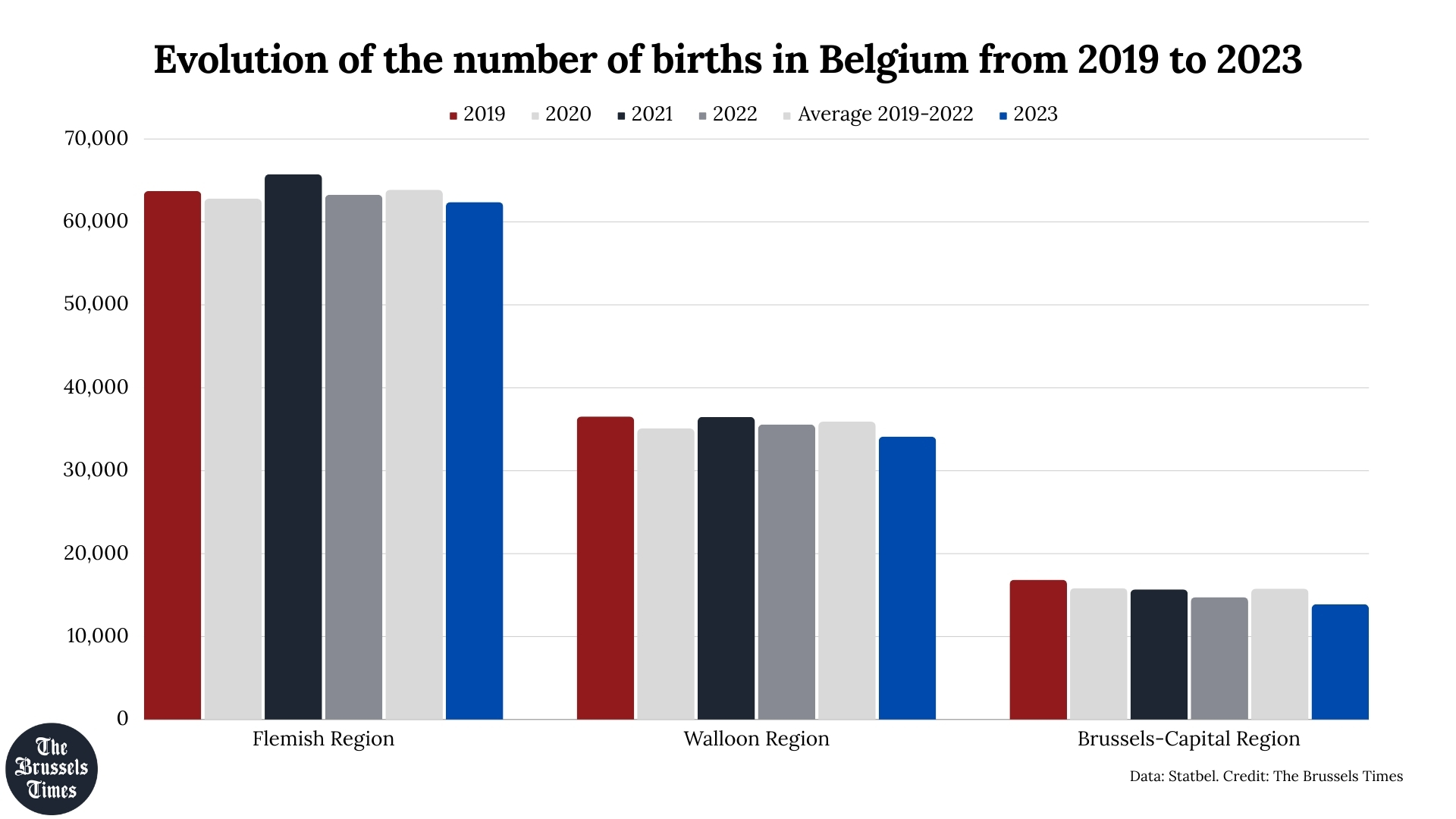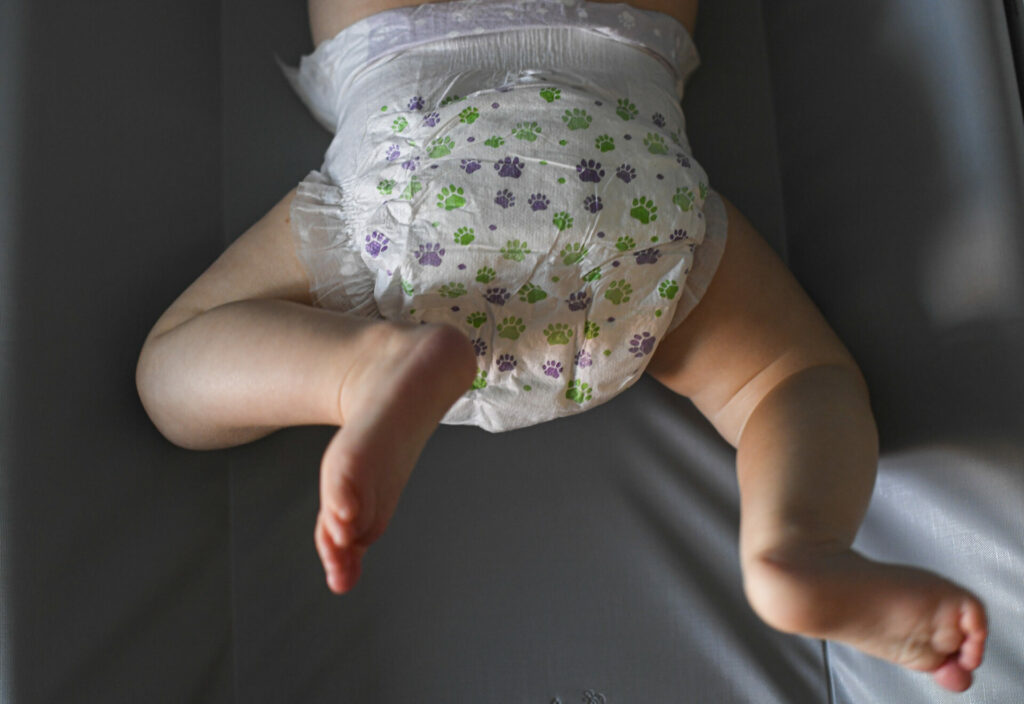The provisional number of births recorded last year shows a marked decrease compared to the average of the previous four years. The most solid drop was recorded in the Brussels-Capital Region.
Around 110,400 births were recorded in Belgium in 2023, a first, preliminary overview published by Statbel, the Belgian statistics office, showed. This represents some 5,200 fewer births than the average for the period 2019-2022, which equates to a decrease of 4.5%.
Statbel noted that the figures show major regional differences. The number remained more or less stable in the Flemish Region, where 62,400 births were recorded in 2023, just under 1,500 fewer than the average number of births in 2019-2022, or a 2.3% drop. The drop was slightly more pronounced in the Walloon Region, with 34,100 births, 1,800 births or 5% fewer compared to the 2019-2022 average.
However, the clearest fall was seen in the Brussels-Capital Region. Here, 13,900 births were recorded, down by 1,900 births or 12% compared to the average of almost 15,800 recorded in the period 2019-2022. This means the drop in births in the capital region is almost three times as high as the Belgian average.

"Brussels consequently experienced the steepest drop in the number of births of all regions," Statbels' spokesperson Wendy Schelfaut said. Taking into account that the starting figures in Brussels are markedly lower than in Wallonia or Flanders, this drop is even more stark.
The number of births was lower than the average for the period 2019-2022 for every month of 2023 and fluctuated between -1.9% and -10.5% each month.
Schelfaut stressed that the statistics do not take into account the evolution of the number of women of childbearing age nor the population structure during the analysed periods. "Further scientific research should reveal the impact of this on the number of births."
She also noted that these preliminary figures do not allow Statbel to make any clear observations, "although they do give a rough idea about the evolution of the number of births." This risks undermining social capital, a particularly worrying prospect in a greying population such as the one in Belgium.
In 2022, the declining number of births in recent years, put alongside increased deaths as a result of the ageing population, did result in the natural balance (the difference between the number of births and deaths) being negative, which was exceptional. Excluding the 2020 Covid-19 crisis, when deaths surged, the last time a negative balance was recorded was in 1940.

